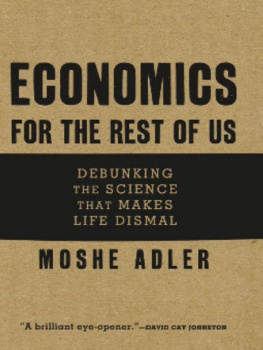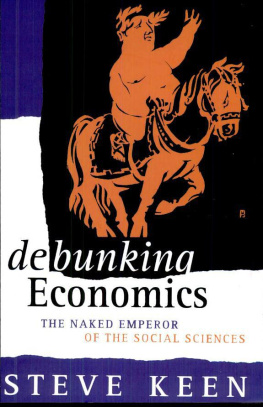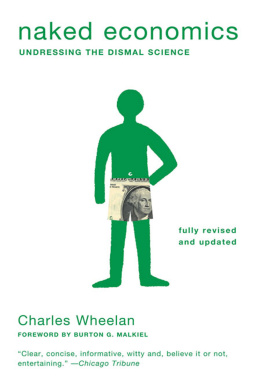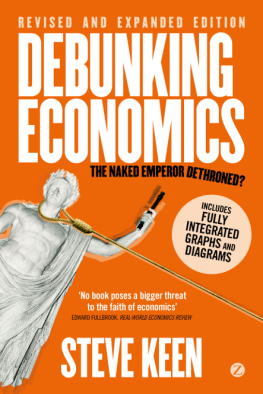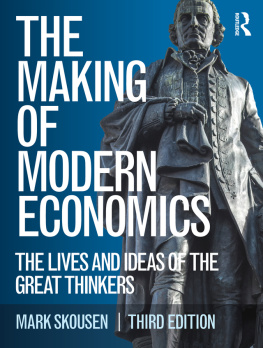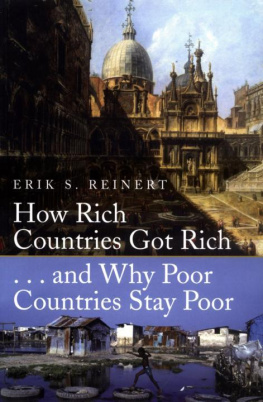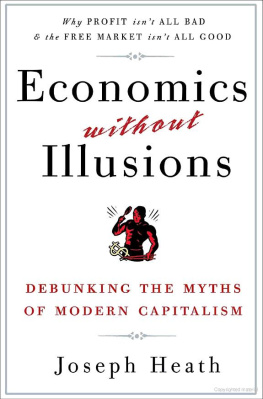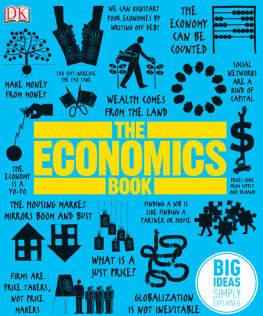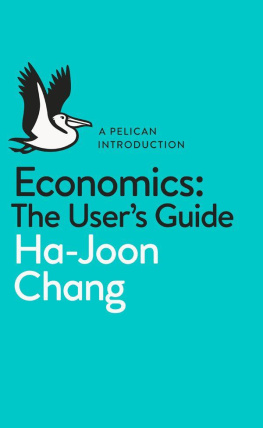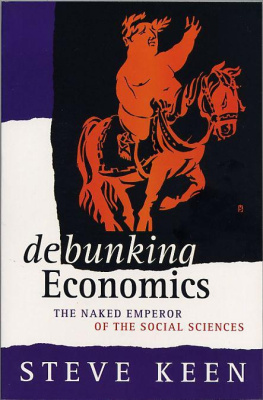Table of Contents
Table of Figures
List of Tables
To the memory of my parents, Shoshana and Israel
But while they prate of economic laws, men and women are starving. We must lay hold of the fact that economic laws are not made by nature. They are made by human beings.
Franklin D. Roosevelt
INTRODUCTION
Professors of introductory economics are fond of telling their students about the eternal quest for a one-handed economist who would not be able to say, On the other hand... Is the recession about to end? Economists always waffle on this and similar questions; such predictions can, of course, get them into trouble. But whenever it is necessary to choose sides between the rich and the poor, between the powerful and the powerless, or between workers and corporations, economists are all too often of one mind: according to conventional economic theory, whats good for the rich and the powerful is good for the economy.
Why is economic theory so one-sided? Is it because anyone who devotes her life to investigating how the economy works inevitably reaches the conclusion that whats good for bosses is good for everybody? Not at all. For every critical economic issue there are competing concepts and theories that lead to different conclusions. The problem is that when they are not missing from textbooks altogether, these theories are almost always summarily dismissed. This would have been of no consequence if the only victims were economics students, but unfortunately most citizens are familiar only with textbook economics, and the economists who influence government policies are, by and large, textbook economists. (Nobel Prize winner Joseph Stiglitz was an exception, but his term as senior vice president and chief economist of the World Bank lasted only three years, from 1997 to 2000).
Economics for the Rest of Us examines the two cornerstones of economics: Part 1 covers economic efficiency and Part 2 covers how wages are determined. The definition of economic efficiency used by economists is covered in the first part of the book because all of economics is centered around it. When economists claim that the free market is efficient, regardless of how skewed its distribution of resourcesor of how much suffering it producesand when they oppose government intervention to decrease inequality and reduce suffering, it is their definition of efficiency that they rely on. If this were the only valid definition of economic efficiency, economists would perhaps be justified in using it. But, in fact, economists have a choice. An earlier definition of economic efficiency was sensitive to the distribution of income, and this earlier definition suggests that to increase efficiency the government should redistribute resources from the rich to the poor. The definition that economists adopted instead was developed as an attempt to discredit the earlier definition. As we shall see, however, it is not clear that the redistribution version can be discredited so easily.
While economists have managed to convince themselves that the redistribution of income cannot be justified, the rest of the world sees things differently. Practically all governments require the rich to pay higher taxes, and for their part the poor often demand that the government services they get be of the same quality as the services that the rich get, particularly when it comes to education. This forces economists into the sorts of practical debates that their theories were designed to snuff, and in these debates they do not speak with a single voice. As Part 1 shows, some economists argue that the tax rate that the rich pay is inefficiently high because it discourages work, while other economists have conducted empirical research showing that it does not actually have that effect. Similarly, some economists argue that increasing the funding for poor schools would not make a difference because the government will just waste it, while other economists show that this is not the case.
While economists are divided on these important issues, the idea that high taxes are inefficient has nevertheless dominated U.S. tax policy over the last thirty years. As we shall see, what makes this implausible claim appear plausible is the basic model that economists use for analyzing the labor market. The model assumes that employees are free to choose the number of hours that they work, and that when they are paid less they work less. It also assumes that workers do not enjoy work and are shirkers by nature. It is a model of an economy of disconnected individuals who are neither tied to other individuals and to capital in the production process, nor governed by any social norms. In such a model, no outcome can be ruled out and any outcome is equally plausible.
The distribution of income is often thought of as a stage that comes after goods are produced and sold. But it is the distribution of income that determines what and how much will be produced in the first place, and an unequal distribution of income often leads to a decrease in the size of the economic pie. One example is the production and distribution of AIDS drugs. Poor people in developing countries cannot afford these drugs not because they are objectively poor, but because they are poorer than people in developed countries. The drug companies choose to price drugs for AIDS beyond the reach of the people of the Third World because it is more profitable to sell these drugs at high prices that only people in the First World can afford, rather than to sell them at low prices all over the world. But as Part I shows, the victims of inequality are not only poor people in the Third World but also middle-income people in the First. Paradoxically, we will see that with the economists definition of economic efficiency, it is possible to conclude that the economy is growing at the same time that most people in that economy have less.
Part II covers theories of wages and of executive compensation, or how inequality is created to begin with. Why does one person make in an hour what another makes in a week or month or year? The neo-classical theory that economists have adopted could not be simpler: A person is paid what she is worth to her employer. If she earns $7.25/hour, currently the national minimum wage, then her contribution to her employer is $7.25/hour. And if she is paid many thousands of dollars an hour, then her contribution to her employer is also that much greater.
But this is not the only theory of wages and compensation that exists. The neo-classical theory was invented to replace the classical theory, which argued that pay rates are determined not by contributions to productiona meaningless concept, as we will explorebut by the relative bargaining strengths of the different parties. As Part 2 shows, the empirical data supports the classical theory and is inconsistent with the neo-classical theory.
If pay rates are determined by bargaining power, what determines bargaining power? When it comes to workers, laws and government policies play a decisive role. Union rights, the minimum wage law, unemployment insurance, Social Security, welfare, and the enforcement of the rights of immigrants all combine to determine the ability of workers to say no to low wages, and all have been eroded since the 1980s. Part II will make clear the effect of this erosion on workers well-being.
Unlike workers, executives who bargain with their employers often have the upper hand. And in this case economists have a very good, if simple, explanation for why. The employers of executives are their companies shareholders, and when each company is owned by a great number of different shareholders, there is nobody to mind the store. As we shall see, this theory is merely an application of the classical theory of wages, which relies on bargaining power to explain rates of pay.

